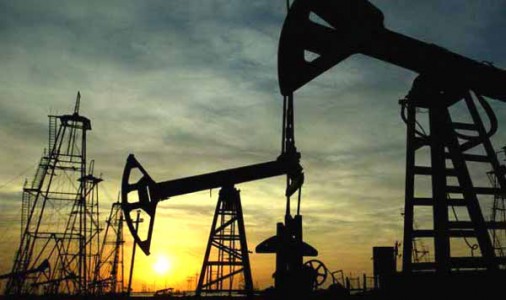By Corina Pons and Alexandra Ulmer

(Reuters) – China will lend Venezuela around $10 billion in coming months, half as part of a bilateral financing deal and the other half for the development of oil fields, a senior official at state oil company PDVSA said on Thursday.
Fresh funds are a boon for financially squeezed Venezuela and will likely increase market confidence over the OPEC country’s ability to meet major debt payments and arbitration awards. Venezuelan bonds rose on Thursday following the news.
However, relief may be tempered as the loans appear largely earmarked and will only go so far in countering the steep tumble in oil prices and Venezuela’s severe recession.
The first $5 billion loan, a renewal of the long-standing Joint Chinese-Venezuelan Fund, will be destined for wide-ranging projects, the official said. With a five-year payment term instead of the usual three, the loan will be signed this month and deposited in Venezuela’s international reserves in April.
The other “special” $5 billion loan will likely stipulate hiring Chinese companies to boost production in PDVSA’s mature oil fields, the source said. That 10-year loan will be signed in June, taken out by Venezuelan state development bank Bandes, and invested in 2015.
“China wants to decisively back investments in areas like mature oil fields so that PDVSA can rapidly increase its![]() production,” said the source, who asked not to be identified.
production,” said the source, who asked not to be identified.
Energy-hungry China is keen to have a foothold in Venezuela, which has the world’s largest oil reserves, as part of a broader trend in which Beijing provides billions in financing to ensure crude supplies. The loans often hinge on hiring Chinese construction, engineering or oil services companies.
The funds would provide welcome investment in Venezuela’s oil sector just as PDVSA’s pragmatic new leadership seeks to shore up output.
China has already loaned Venezuela over $45 billion in return for repayment in oil and fuel. The money is typically deposited in funds that focus on infrastructure![]() and economic development.
and economic development.
Venezuela’s opposition politicians have voiced concerns over what they deem excessive reliance on China and decry a lack of transparency on the terms of the loans.
MORE BOLIVARS, FLEXIBILITY
PDVSA is exploring various ways to shore up its coffers, the source said. The effort is seen as essential in a country where 96 percent of hard currency income stems from oil revenue.
The company is able to sell some dollars on Venezuela’s new Simadi foreign exchange platform via the state-run Banco de Venezuela, for instance.
However, the source stressed that PDVSA will only be able to sell dollars stemming from its joint venture operations at the Simadi rate, which is currently trading at around 190 bolivars.
The vast majority of PDVSA’s hard currency will still be changed at the far less favorable rate of 6.3 per bolivar, one of three official exchange rates.
Nearly all foreign oil companies will have access to Simadi for their capital and operational expenditures, the source added.
Access to a more advantageous rate would benefit companies operating joint ventures with PDVSA in the oil-rich Orinoco belt. The joint ventures are also set to gain more control over procurement, the source said.
“The idea is to make things more flexible,” he said.
PDVSA is not planning to issue bonds this year and its loans from private banks are set to be “moderate.”
The company is also close to an accounting deal to continue contracting General Electric’s services despite around $350 million in outstanding invoices, according to the official.
Jamaica is interested in settling its debt under the Petrocaribe energy![]() cooperation program that allows countries to finance crude purchases, he said, no resolution has been reached.
cooperation program that allows countries to finance crude purchases, he said, no resolution has been reached.
He estimated PDVSA’s output will increase this year and even more next year thanks to the investment plans, adding that he expects a rebound in oil prices in the second half of 2015. (Writing by Alexandra Ulmer; Editing by Bernard Orr, Leslie Adler and Dan Grebler)
Bron: Reuters

